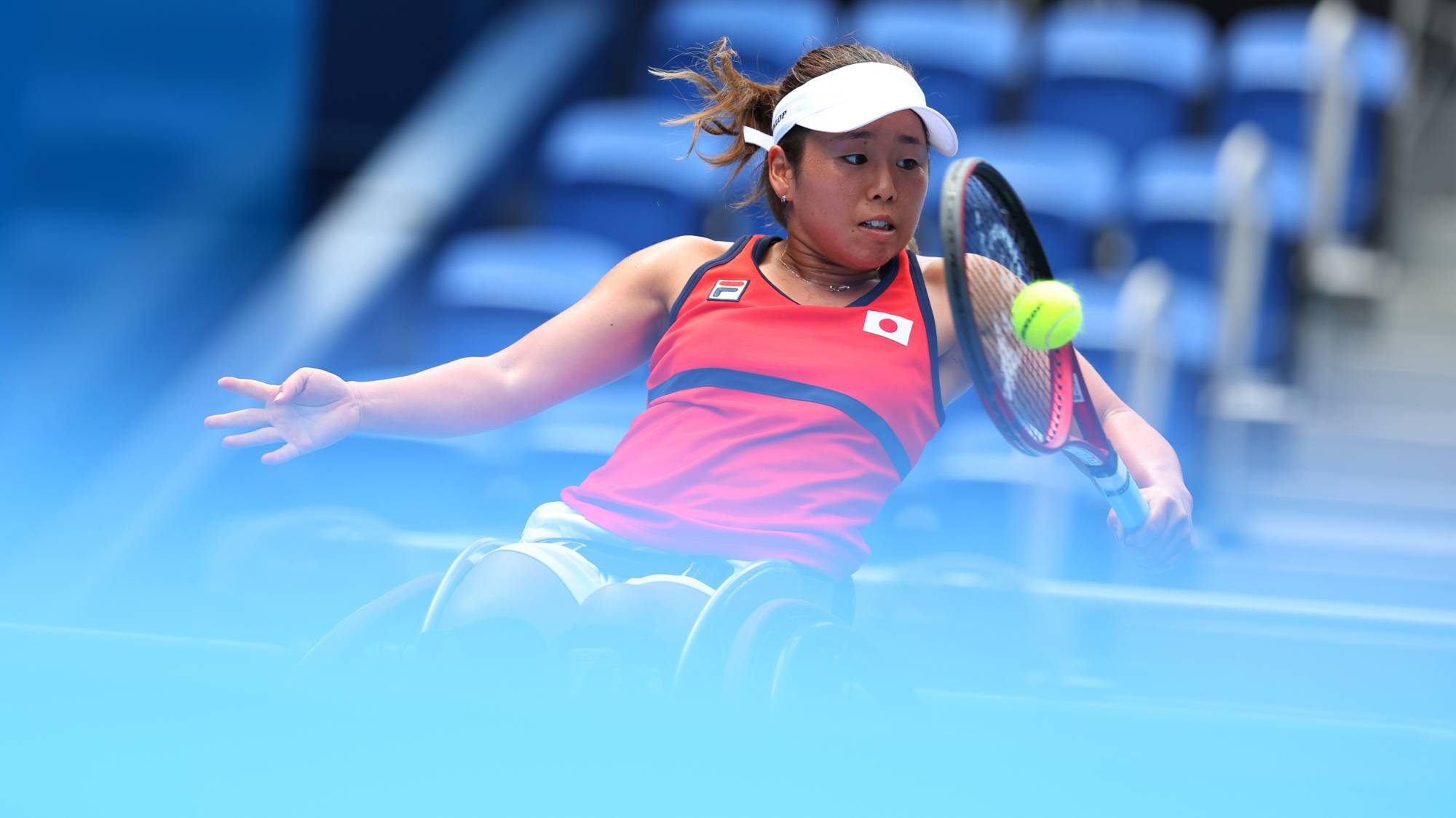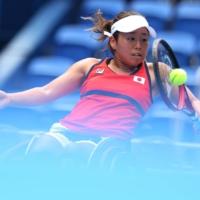Yui Kamiji and Zhu Zhenzhen have known each other for a while, and the Japanese star counts her Chinese counterpart as a good friend.
Except, of course, when they find themselves on opposite sides of the net, like they did Tuesday morning at the Tokyo Paralympics.
Kamiji was in a fight early but found her game as the match went on and seized control in the latter half of a 7-5, 6-1 quarterfinal victory at Ariake Tennis Park.
Kamiji advanced to the semifinals for the second consecutive Games.
"She's the kind of player who doesn't give up and she played with a lot of determination in the first part of the match," said Kamiji, the world's No. 2 player. "She was able to play forward a lot and get some winners that way.
"I was able to play my kind of game in the second half and was able to move forward more. I'm particularly happy with how the last game played out."
Zhu got off to a good start and held a 5-4 advantage in the first set when the tide began to turn.
Kamiji won 12 of the next 14 points to close out the set. She then won the first three games of the second set before Zhu was able to — briefly — slow her momentum. Kamiji, with her forehand looking increasingly strong, breezed through the next three games to close out the set and the match.
World No. 1 Diede de Groot of the Netherlands followed Kamiji onto center court and beat Japan's Momoko Ohtani 6-3, 6-2 in their quarterfinal. De Groot has won all three Grand Slam titles this year and moved closer to the rare Golden Slam.
“Statistically, I can definitely reach it,” de Groot said. “But then there's so many good players and definitely the next round is going to be a tough one. I just have to play round by round and then I'll see.”
Great Britain's Jordanne Whiley won a three-setter 6-3, 3-6, 7-5 over American Dana Mathewson to set up a semifinal against de Groot.
Kamiji will face Aniek van Koot of the Netherlands in the semifinals.
Kamiji is on a mission to win gold after coming up short at the Rio Games in 2016.
She has won three of tennis' four majors as a singles player and has claimed the doubles title at all four. Paralympic gold is one of the few prizes missing from her trophy case.
"I've been trying to win a gold medal since the moment I saw (male player Shingo) Kunieda win the gold medal at the London Paralympics," she said.
Kamiji bowed out in the quarterfinals at the London Games and fell in the semifinals at the 2016 Games, where she bounced back to beat de Groot for bronze.
The feeling of coming up short in Rio has lingered, and the 27-year-old is eager to get the job done at these Games.
"I was aiming for gold in Rio, but I was not able to play at my best there and that was really disappointing," she said. "So these past five years, I've been doing my best and thinking about getting revenge in Tokyo."
Kamiji also wants to win gold in the hope of broadening the public's understanding of her sport.
"It's too bad we've been playing without crowds at a Games being held in my own country," Kaimiji said. "But I know there are a lot of people cheering for me.
"There are also people who don't know about wheelchair tennis, so I hope this can be a catalyst for more people to learn about it. I want to improve people's understanding of the sport.
"I'd be grateful if I could contribute to that."




